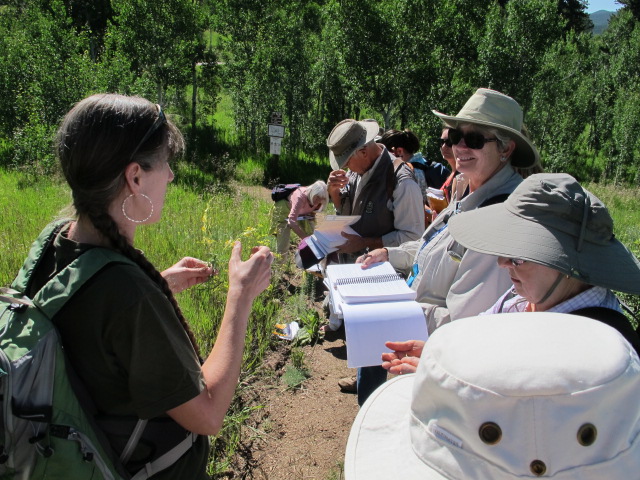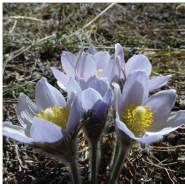Metro to Mountain Native Plant Master® Program
Why native plants?
Colorado has a wealth of native plants, colorful wildflowers, grasses, shrubs and trees, which are naturally adapted to our variable climate, soils, temperatures and elevations. Native plants are great for landscaping because of their adaptability.
How can I get information about Colorado plants?
Take a Native Plant Master® class or course or browse the Colorado Plant Database for research-based information on 1,000+ Colorado plants.
What kinds of educational experiences are offered?
An easy entry into the program is a NPM special class where you can discover local wildflowers along a trail, brush up on basic botany or delve into topic areas like sustainable landscaping and invasive weeds.

Deepen Your Knowledge
To deepen your knowledge, take a NPM curriculum course to learn scientific identification and fascinating facts about Colorado plants during three sessions along the trail in a local natural area.
Where can I take a class?
Award-winning Colorado Native Plant Master classes and courses are offered across the Metro to Mountain (M2M) area – Clear Creek, Denver, Gilpin and Jefferson Counties. Offerings are also sponsored by other Extension offices across the state. See Colorado NPM Programs.
What do participants say?
“It is the best educational experience I have had through my local Extension office. It is . . . hands-on, taught by passionate intelligent people, and has real world applications.”
Who teaches NPM offerings? Native Plant Master classes and courses are taught by certified Native Plant Masters, CSU Extension agents, CSU faculty and other horticultural and natural resource experts.
Program History
The Colorado Native Plant Master® Program is an offering of Colorado State University Extension. The program was founded in 1997 in Jefferson County and has since grown across Colorado. The mission of the program is to educate the public about native plants in order to foster stewardship, sustainable landscaping and management of weeds that threaten native ecosystems. The program has won numerous awards, most recently the Award of Excellence from the Western Extension Directors Association.


